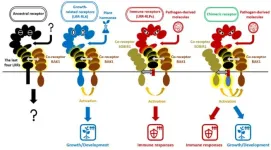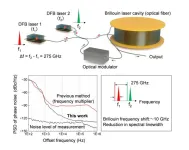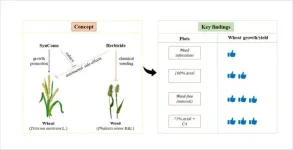Among most ischemic (clot-caused) stroke survivors including those taking anticoagulant medications, use of antidepressants in the SSRI or SNRI class did not increase the risk of hemorrhagic (bleeds) stroke or other serious bleeding events. However, patients taking anti-depressants in combination with dual anti-platelet therapy or DAPT had an increased risk of bleeding. In addition, antidepressants from other classes increased the risk of serious bleeding events by 15% in comparison to antidepressants in the SSRI or SNRI classes. Embargoed until 4 a.m. CT/5 a.m. ET, Thursday, Feb. 1, 2024
DALLAS, Feb. 1, 2024 — Most stroke survivors were able to safely take two types of common antidepressants, according to a preliminary study to be presented at the American Stroke Association’s International Stroke Conference 2024. The meeting will be held in Phoenix, Feb. 7-9, and is a world premier meeting for researchers and clinicians dedicated to the science of stroke and brain health.
Among people with ischemic (clot-caused) stroke, those who began taking an antidepressant known as an SSRI (selective serotonin reuptake inhibitor) and/or an SNRI (serotonin and norepinephrine reuptake inhibitor) for the common conditions of post-stroke depression and anxiety, did not have an increased risk of hemorrhagic (bleeds) stroke or other serious bleeding. This included people taking anticoagulation medications. There was, however, an increased risk of hemorrhagic stroke among stroke patients taking two anti-platelet medications, also called dual anti-platelet therapy or DAPT.
“Mental health conditions, such as depression and anxiety, are very common yet treatable conditions that may develop after a stroke. Our results should reassure clinicians that for most stroke survivors, it is safe to prescribe SSRI and/or SNRI antidepressants early after stroke to treat post-stroke depression and anxiety, which may help optimize their patients’ recovery,” said study lead author Kent P. Simmonds, D.O., Ph.D., a third-year physical medicine and rehabilitation resident at the University of Texas Southwestern Medical Center in Dallas. “However, caution is needed when considering the risk-benefit profile for stroke patients receiving dual anti-platelet therapy because we did find an increased risk of bleeding among this group.”
According to the American Heart Association’s Heart Disease and Stroke Statistics 2024 Update, when considered separately from other cardiovascular diseases, stroke ranks fifth among all causes of death, behind diseases of the heart, cancer, COVID-19 and unintentional injuries/accidents. Approximately one-third of stroke survivors develop poststroke depression. If left untreated, depression may affect quality of life and reduce the chances for optimal poststroke recovery such as returning to their usual daily living activities without assistance.
The most common classes of antidepressants are SSRIs or SNRIs, and they are widely used and effective for treating anxiety and depression. However, they may not be prescribed at all or early enough after a stroke, when the risk of depression or anxiety is particularly high, due to concerns that they may increase the risk of a hemorrhagic stroke or other serious types of bleeding.
Researchers looked at the frequency of serious bleeding among hundreds of thousands of stroke survivors who took different types of SSRI and/or SNRI antidepressants (such as sertraline, fluoxetine, citalopram, venlalfaxine). Serious bleeding was defined as bleeding in the brain, digestive tract; and shock, which occurs when bleeding prevents blood from reaching the body’s tissues.
Researchers also investigated serious bleeding among stroke survivors who took antidepressants combined with different types of blood-thinning medications that are used to prevent future blood clots. These blood-thinning medications may include either anticoagulants or antiplatelet medications. Anticoagulants are prescribed as a single medication and include medications such as warfarin, apixaban and rivaroxaban. Antiplatelet medications may be prescribed as either a single medication (commonly aspirin) or two types of antiplatelet medications can be used in dual antiplatelet therapy. DAPT includes aspirin plus another antiplatelet medication called a P2Y12 inhibitor (such as clopidogrel, prasugrel or ticagrelor).
The study found:
SSRI and SNRIs were generally safe to start during the important early stages of recovery as patients taking these medications were not more likely to develop serious bleeding compared to stroke survivors who did not take an antidepressant. This included ischemic stroke patients who are also taking anti-coagulation therapy. An increased risk of serious bleeding occurred when SSRIs or SNRIs were taken in combination with DAPT treatments (aspirin and blood thinners). However, the overall risk remained low as serious bleeding events were rare. Among ischemic stroke patients on antidepressant medications, there was a 15% increase in the risk of serious bleeding when taking medications from classes such as mirtazapine, bupropion and tricyclics compared to SSRI/SNRIs. “Maximizing rehabilitation early after a stroke is essential because recovery is somewhat time-dependent, and most functional gains occur during the first few months after a stroke,” Simmonds said. “Fortunately, dual antiplatelet therapy is often administered for 14, 30 or 90 days, so, when indicated, clinicians may not need to withhold antidepressant medications for prolonged periods of time. Future research should investigate the risk of bleeding associated with the use of anti-depressant and anxiety medications among patients with hemorrhagic or bleeding stroke.”
According to a 2022 American Heart Association scientific statement, social isolation and loneliness are associated with about a 30% increased risk of heart attack or stroke, or death from either. “Depression may lead to social isolation, and social isolation may increase the likelihood of experiencing depression. The current study helps answer safety issues around the use of antidepressants for treatment of mental health issues that may develop after a stroke,” said Crystal Wiley Cené, M.D., M.P.H., FAHA, chair of the writing group for the Association’s scientific statement, and a professor of clinical medicine and chief administrative officer for health equity, diversity and inclusion at the University of California San Diego Health. Dr. Cené was not involved in this study.
Study details and design:
The retrospective study included electronic medical records data from 666,150 ischemic stroke patients from over 70 large health care centers in the United States: 35,631 were taking SSRI/SNRI antidepressant medication, and 23,241 were taking other antidepressants; however, most (607,278) were not taking any antidepressant. Patients were treated at 70 health care centers over 20 years. Patients were identified from electronic medical records for 2003 through 2023. The study had some limitations. Researchers used statistical methods to adjust for differences among the groups that may not have accounted for all the important differences among the groups. The study also did not account for the dosage, duration, or number of antidepressants taken by participants, which may have affected the results.
Co-authors, disclosures and funding sources are listed in the abstract.
Statements and conclusions of studies that are presented at the American Heart Association’s scientific meetings are solely those of the study authors and do not necessarily reflect the Association’s policy or position. The Association makes no representation or guarantee as to their accuracy or reliability. Abstracts presented at the Association’s scientific meetings are not peer-reviewed, rather, they are curated by independent review panels and are considered based on the potential to add to the diversity of scientific issues and views discussed at the meeting. The findings are considered preliminary until published as a full manuscript in a peer-reviewed scientific journal.
The Association receives funding primarily from individuals; foundations and corporations (including pharmaceutical, device manufacturers and other companies) also make donations and fund specific Association programs and events. The Association has strict policies to prevent these relationships from influencing the science content. Revenues from pharmaceutical and biotech companies, device manufacturers and health insurance providers and the Association’s overall financial information are available here.
Additional Resources:
Multimedia is available on the right column of the release link After Feb. 1, view abstract 117 in the ASA International Stroke Conference 2024 Online Program Planner AHA news release: Depression common following a stroke impacting 1/3 of survivors (Feb. 2023) AHA statement news release: Mental health is important to overall health, and heart disease prevention and treatment (Jan. 2021) For more news at ASA International Stroke Conference 2024, follow us on X (formerly known as Twitter) @HeartNews #ISC24
###
About the American Stroke Association
The American Stroke Association is devoted to saving people from stroke — the No. 2 cause of death in the world and a leading cause of serious disability. We team with millions of volunteers to fund innovative research, fight for stronger public health policies and provide lifesaving tools and information to prevent and treat stroke. The Dallas-based association officially launched in 1998 as a division of the American Heart Association. To learn more or to get involved, call 1-888-4STROKE or visit stroke.org. Follow us on Facebook, X.
END






